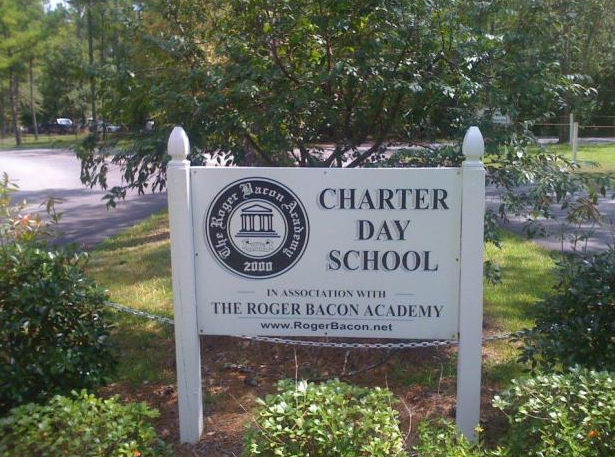North Carolina charter school’s skirt requirement violated female students’ rights, court rules
The school’s founder said the skirt requirement was part of the school’s ‘chivalry’ policy, which described females as being a ‘fragile vessel’

Your support helps us to tell the story
From reproductive rights to climate change to Big Tech, The Independent is on the ground when the story is developing. Whether it's investigating the financials of Elon Musk's pro-Trump PAC or producing our latest documentary, 'The A Word', which shines a light on the American women fighting for reproductive rights, we know how important it is to parse out the facts from the messaging.
At such a critical moment in US history, we need reporters on the ground. Your donation allows us to keep sending journalists to speak to both sides of the story.
The Independent is trusted by Americans across the entire political spectrum. And unlike many other quality news outlets, we choose not to lock Americans out of our reporting and analysis with paywalls. We believe quality journalism should be available to everyone, paid for by those who can afford it.
Your support makes all the difference.A North Carolina charter school’s dress code policy requiring female students to wear skirts has been deemed unconstitutional.
In a 10-6 ruling on Tuesday, the US Court of Appeals for the Fourth District in Richmond, Virginia, determined that the Charter Day School in Leland, which had argued that its policy was intended to preserve the institution’s “chivalry”, violated the equal protection clause of the Constitution’s 14th Amendment.
Senior Circuit Judge Barbara Milano Keenan, an Obama-appointed judge, wrote in the majority opinion that the charter school had “imposed the skirts requirement with the express purpose of telegraphing to children that girls are ‘fragile,’ require protection by boys, and warrant different treatment than male students, stereotypes with potentially devastating consequences for young girls".
The school, which promotes itself as being a tuition-free institution offering “robust, year-round classical curriculum” on its website, had previously required all girls from kindergarten to grade eight to wear skirts, skorts or jumpers, noting that the dress code was part of their “discipline and order” policy.
In 2015, however, one of the case’s two lead plaintiffs, Bonnie Peltier, requested that her child be exempted from being required to follow the school’s dress code, which she said was a discriminatory policy.
In court documents, it was revealed that the school’s founder, Baker A Mitchell III, had responded to this request by arguing that the requirement for the female students to wear skirts was intended to keep “chivalry” intact, a word which he described in the letter as being “a code of conduct where women are treated as a fragile vessel that men are supposed to take care of and honor”.
He added that, should parents not agree with this policy, sending children to the school is a “choice” and they were free to remove their children at will.
For the defence, the school maintained that it could not have violated the 14th Amendment, which prevents arbitrarily discriminatory laws from being passed, because the amendment applies to “state actors” - a category it said did not fit charter schools, which are privately-run public schools in the US.
The court later determined that that argument had no legs, as the school not only receives government funding, but is also subject to the state’s educational requirements and is listed on forms as a “public school” in state statutes.
The American Civil Liberties Union, which represented the students’ case against the North Carolina charter school, called the ruling "a victory for North Carolina’s students attending public charter schools”.
“[The ruling] should put charter schools across the country on notice that they must follow the same rules as traditional public schools when it comes to guaranteeing students’ equal educational opportunities," said Galen Sherwin, the students’ lawyer with the ACLU, in an interview with Reuters.
The school, however, called the ruling "mistaken and harmful.”
Aaron Streett, who represented Charter Day School, claimed that the 10-6 ruling contradicted US Supreme Court precedent and “limits the ability of parents to choose the best education for their children”, a view that was echoed by the Trump-appointed judge who wrote the dissenting opinion and argued that the issue of gender stereotyping was the “least of his concerns”.
“My worry is that the majority’s reasoning transforms all charter schools in North Carolina, and likely all charter schools in the other states that form our circuit, into state actors,” wrote Judge A Marvin Quattlebaum, Jr in the dissenting opinion. “As a result, the innovative alternatives to traditional public education envisioned by North Carolina when it passed the Charter Schools Act, and thus the choices available to parents, will be limited.”
The federal court also allowed for the students in the case to pursue a claim under Title IX, which bans any kind of sex-based discrimination in federally funded schools.



Join our commenting forum
Join thought-provoking conversations, follow other Independent readers and see their replies
Comments